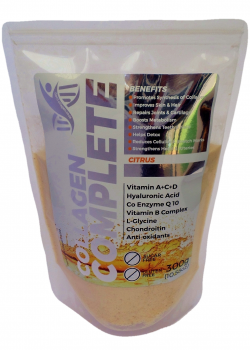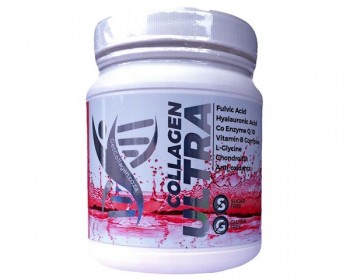Both our Collagen Ultra and Complete Supplements
Contains ZINC GLUCONATE!
10 Powerful Zinc Benefits, Including Fighting Cancer
Zinc, which is actually a type of metal, is an essential trace element. When you hear zinc in regards to your health, you probably think of it as one of the many effective natural cold remedies. In other words, only really necessary once in a great while.
However, zinc is needed in small amounts every day in order to maintain health and perform important functions each day. Zinc benefits the body in many ways: helps with hormone production, growth and repairment; improves immunity and facilitates digestion. Zinc benefits also include its ability to act as an anti-inflammatory agent, therefore zinc may have significant therapeutic benefits for several common, chronic diseases like fighting cancer or reversing heart disease.
Zinc is actually present within all bodily tissue and needed for healthy cell division. It acts like an antioxidant within the body, fighting free-radical damage and slow the aging process. Zinc also has a big impact on hormonal balance, so for this reason, even a small zinc deficiency can result in an increased risk for infertility or diabetes.
According to researchers at the Department of Dermatology at the University of California,
zinc plays an essential role in numerous biochemical pathways: organ systems, including the integumentary, gastrointestinal, central nervous system, immune, skeletal, and reproductive systems… Zinc deficiency results in dysfunction of both humoral and cell-mediated immunity and increases the susceptibility to infection. (1)
Without enough zinc present in your diet, it’s possible to experience negative reactions like frequently getting sick, feeling like you’re always tired and run down, poor concentration, stunted growth, and the inability to heal wounds.
How Much Do We Need to Experience These Zinc Benefits?
According to the USDA, the dietary reference intakes for zinc below are based on age and gender: (2)
Infants:
- 0–6 months: 2 milligrams/day
- 7–12 months: 3 milligrams/day
Children:
- 1–3 years: 3 milligrams/day
- 4–8 years: 5 milligrams/day
- 9 –13 years: 8 milligrams/day
Adolescents and adults:
- Males age 14 and over: 11 milligrams/day
- Females age 14 to 18 years: 9 milligrams/day
- Females age 19 and over: 8 milligrams/day
Zinc is usually available in various forms, including lozenges, syrups, gels and capsules. Zinc is also found in most multivitamin and mineral supplements. These supplements can contain zinc in the form of zinc gluconate, zinc sulfate or zinc acetate. As of now, all are believed to work in very similar ways so one type is not thought to be superior over the others.
Symptoms of Zinc Deficiency
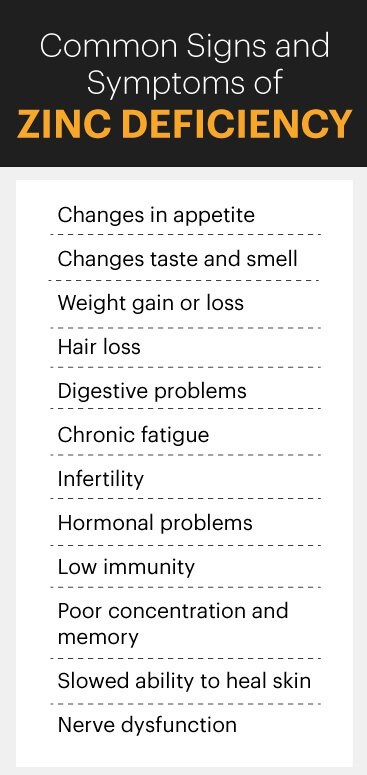
Zinc deficiency is common around the world, including in the U.S. (3) Zinc deficiency occurs when someone doesn’t eat enough foods that contain zinc or has trouble absorbing and using zinc from foods due to digestive disorders or very poor gut health, such as having leaky gut syndrome. The highest levels of zinc are found in foods foods high in protein — especially animal proteins, including high-quality meats, certain kinds of seafood and dairy (ideally raw milk and dairy products that are unpasteurized and organic).
Zinc is found in grains and legumes, plus it’s usually added to processed, packaged grain products like cereals. However, this type of zinc isn’t as absorbable or useful by the body since it’s bound to “antinutrients” like phytates that actually prevent zinc absorption.
For this reason, even zinc found in whole foods like legumes and whole grains aren’t as good of a source as animal foods due to naturally occurring antinutrients that block zinc absorption. Research even points to the fact that high intake of carbohydrate foods (especially processed, packaged kinds) in the U.S and other western nations may be one reason why zinc deficiency is on the rise. In part, zinc deficiency is caused because carbohydrates are replacing high-quality protein sources, but also because people’s impaired digestive systems make it difficult to absorb enough zinc. (4)
Who is most at risk for zinc deficiency? Anyone following a plant-based diet that doesn’t include meat or dairy products (vegan or vegetarian) are usually at the greatest risk since their diets eliminate the highest food sources. People who suffer from severe stomach-acid issues, chronic digestive problems like leaky gut syndrome or alcoholism are also more likely to have a zinc deficiency.
Finally, it’s believed that women taking the birth control pill or who are on hormone replacement therapies drugs may also be at a higher risk, since this can interfere with zinc’s roles in the body related to hormones.
The most common signs and symptoms associated with zinc deficiency include:
- Changes in appetite, including food cravings for salty or sweet foods
- Changes in ability to taste and smell
- Weight gain or loss
- Hair loss
- Digestive problems, including diarrhea
- Chronic fatigue syndrome
- Infertility
- Hormonal problems, including worsened PMS or menopause symptoms
- Low immunity
- Poor concentration and memory
- Slowed ability to heal wounds, skin infections or irritation
- Nerve dysfunction
Top Health Benefits of Zinc
1. Increases Immunity and Fights Colds
Zinc is often taken as a natural over-the-counter remedy for fighting colds and symptoms of illnesses. When taken for at least five months, zinc may reduce your risk of becoming sick with the common cold, plus supplementing once you already feel sick can speed up the healing process.
Research shows that zinc can interfere with the molecular process that causes mucus and bacteria to build within the nasal passages. Ionic zinc, based on its electrical charge, has the ability to exert an antiviral effect by attaching to receptors in nasal epithelial cells and blocking their effects. (5)
Research conducted by the Medical Education Center of Chandigarh India found that when zinc was administered within 24 hours of onset of cold-related symptoms, the duration of symptoms was significantly reduced compared to the control group that didn’t supplement with zinc. Fewer patients in the zinc group had cold-related symptoms five and seven days after experiencing the first symptoms compared to those who did not take zinc. (6)
2. Acts as a Powerful Antioxidant that May Help Fight Cancer

Zinc is an effective anti-inflammatory and antioxidant agent, helping fight oxidative stress and decrease the chance for disease development, including as a natural cancer treatment. Especially in elderly patients, zinc benefits include its ability to support support healthy cell division, preventing cancerous cell mutation and stunting tumor growth.
When researchers from the School of Medicine at the University of Michigan studied potential zinc benefits from zinc supplementation on 50 adults, they found that levels of oxidative stress markers were significantly lower in the zinc-supplemented group than in the placebo group. Those with lower zinc levels who didn’t take supplements had higher levels of inflammatory cytokines, higher plasma oxidative stress markers and endothelial cell adhesion molecules. After zinc supplementation, the incidence of illness-related side effects and infections was also significantly lower in the zinc-supplemented group, another example of zinc’s immune-boosting abilities. (7)
3. Balances Hormones
Zinc benefits hormonal health and fertility because it plays an important role in hormone production, including increasing testosterone naturally, which has very widespread roles in both men and women. Zinc also impacts female sex hormones and is even involved in the creation and release of eggs within and from the ovaries.
Zinc is needed for the production of estrogen and progesterone in women, which both support reproductive health. Either too high or too low levels of estrogens can cause problems with menstruation, mood swings, early menopause, infertility and possibly even increase the risk for certain cancers.
4. Fights Diabetes
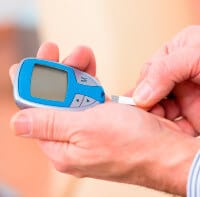
Zinc is needed to balance most hormones, including insulin, the main hormone involved in the regulation of blood sugar and as a diabetes natural cure. Zinc benefits blood sugar levels because it binds to insulin so insulin is adequately stored in the pancreas and released when glucose enters the bloodstream. It also allows for proper utilization of digestive enzymes that are necessary for insulin to bind to cells so glucose is used as fuel for the body, instead of stored as fat.
5. Maintains Heart Health by Supporting Blood Vessels
Zinc is needed to maintain the health of cells within the cardiovascular system, while also lowering inflammation and oxidative stress. The endothelium, the thin layer of cells that lines the blood vessels, partially relies on adequate levels of zinc. Zinc benefits heart health by supporting healthy circulation, since it helps as a natural remedy for high blood pressure and cholesterol levels from clogged or damaged arteries.
6. Prevents Diarrhea
Zinc deficiency is related to chronic digestive problems and diarrheal diseases, so zinc supplementation has been shown to be effective in both prophylaxis and as an acute diarrhea cure.
7. Increases Fertility

Studies show that zinc plays an important role in fertility, especially modulating serum testosterone levels in men. Dietary zinc restriction and deficiency in normal young men is associated with a significant decrease in serum testosterone concentrations, which can negatively impact fertility and lower libido. In one study by the Department of Internal Medicine at Wayne University, after 20 weeks of zinc restriction, giving patients zinc supplementation effectively increased serum testosterone in the majority of men.
Zinc also impacts women’s fertility since adequate levels of zinc are needed during the growth process of the female’s eggs, otherwise eggs cannot properly mature and ovulation suffer.
8. Aids in Nutrient Absorption and Digestion
Zinc affects protein synthesis and is required by the body to use amino acids from foods. It’s also involved in the breakdown of carbohydrates from foods, which are one of the main sources of energy for the body. For this reason, deficiency in zinc can cause low energy levels and contribute to adrenal or chronic fatigue, whereas consuming enough zinc benefits ongoing energy and a healthy metabolism.
9. Supports Liver Health
Supplementing with zinc is shown to reduce the incidence of infection and correlated with lower levels of liver damage. Zinc can help with a liver cleanse to reduce inflammation in the liver, reduces free radical damage, helps with nutrient absorption and allows for proper waste elimination.
10. Helps with Muscle Growth and Repair
Zinc plays a crucial role in cell division and cell growth, so zinc benefits muscle repairment and growth by making it possible for the body to heal itself and maintain strength in the muscular and skeletal systems. Zinc also helps with the release of testosterone, growth hormone and insulin-like growth factor-1 (IGF-1), all of which build muscle mass and a healthy metabolism.
Zinc benefits muscle mass because it helps increase the amount of testosterone the body is able to produce following exercise — especially weight-training and HIIT workouts (high intensity interval training) — because it enhances the conversion rate of androstenedione to testosterone.
Top Food Sources of Zinc
High-protein foods contain the highest amounts of naturally occurring zinc. Here are the top 12 food sources of zinc, although keep in mind the absorption rate of zinc is best from foods that don’t contain any nutrients, which are usually animal-based as opposed to plant-based (percentages below are based on the average adult women’s RDI of 8 milligrams/day):
- Lamb (8) — 3 ounces: 2.9 milligrams (35 percent DV)
- Grass-fed Beef (9) — 3 ounces: 2.6 milligrams (32 percent DV)
- Chickpeas (Garbanzo beans) (10) — 1 cup cooked: 2.5 milligrams (31 percent DV)
- Cashews (11) — ¼ cup: 1.9 milligrams (23 percent DV)
- Pumpkin seeds (12) — ¼ cup: 1.6 milligrams (20 percent DV)
- Yogurt (or Kefir) (13) — 1 container of plain yogurt/6 ounces: 1 milligrams (12.5 percent DV)
- Chicken (14) — 3 ounces: 1 milligrams (12.5 percent DV)
- Turkey (15) — 3 ounces: 1 milligrams (12.5 percent DV)
- Eggs (16) — 1 large: 0.6 milligrams (7 percent DV)
- Mushrooms (17) — 1 cup: 0.6 milligrams (7 percent DV)
- Salmon (18) — 3 ounces: 0.5 milligrams (6 percent DV)
- Cocoa powder (19) — 1 tablespoon: 0.3 milligrams (3 percent DV)

Recipes High in Zinc
You can add more zinc to your diet naturally by including plenty of zinc-rich foods in your meals. Here are three ideas to get you started:
Garlic Lamb Roast Recipe
Total Time: 6–10 hours
Serves: 2–4
INGREDIENTS:
- 1 leg of lamb that will fit in your crockpot
- Water to cover lamb
- 2 tablespoons worcestershire
- 2 tablespoons coconut vinegar
- 6 garlic cloves
- 1 teaspoon sea salt
- 1 teaspoon black pepper
- 1 teaspoon rosemary
- Chopped carrots, onions and butternut squash
DIRECTIONS:
- Place all ingredients in crock pot. Cook on low for 6–10 hours depending on settings and size of lamb leg.
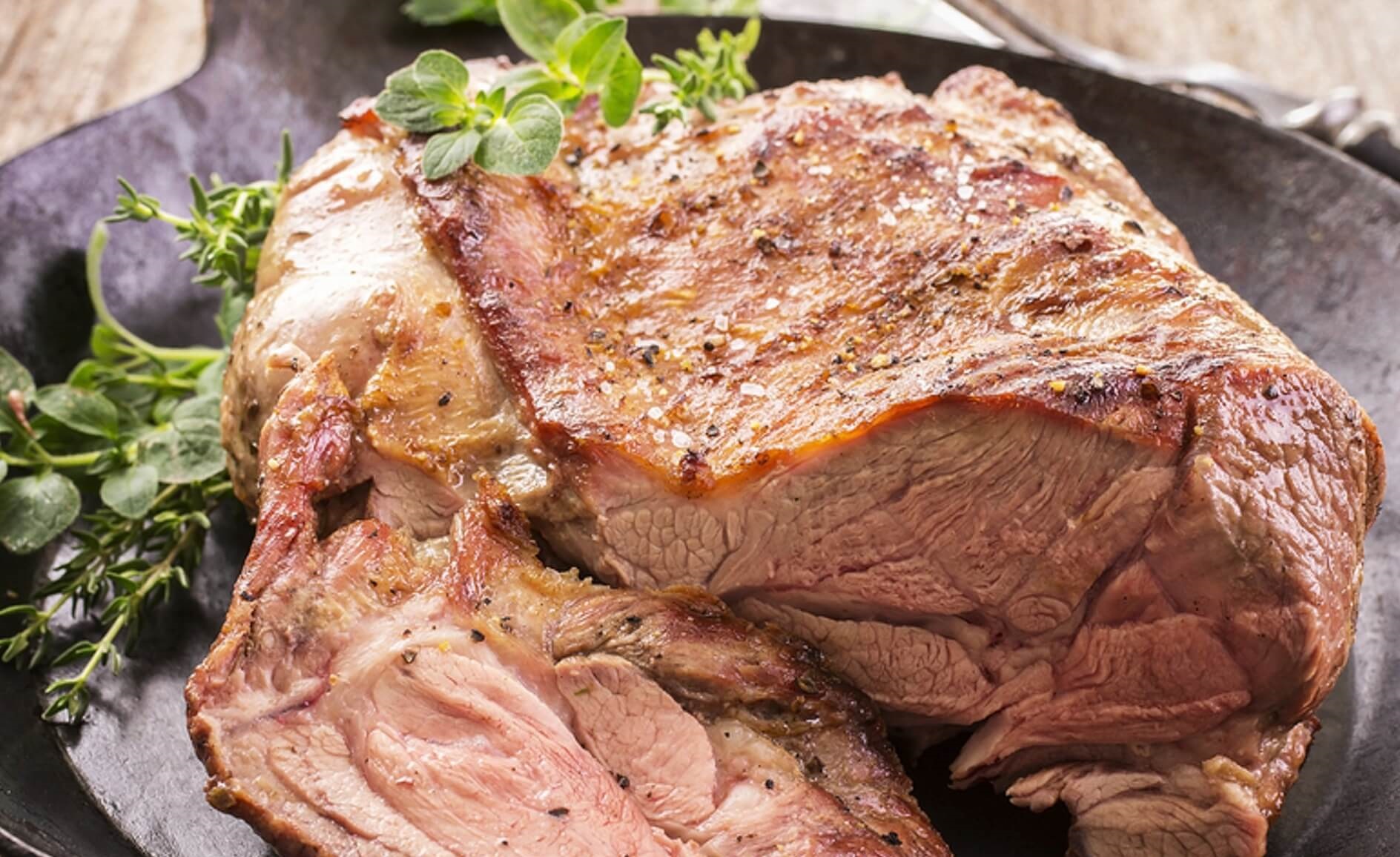
Crockpot Beef Stew Recipe
Total Time: 4–8 hours, (depending on crockpot setting)
Serves: 4–6
INGREDIENTS:
- 2 pounds organic beef stew meat
- 2 tablespoon olive oil
- 1 cup celery, diced
- 3 garlic cloves, minced
- 1 medium onion, diced
- 1 sprig fresh thyme
- 1 sprig fresh rosemary
- 1 tablespoon worcestershire sauce
- 1 cup chopped carrots
- 1 can (14.5 ounces) fire-roasted diced tomatoes
- 1 tablespoon coconut sugar
- 1 tablespoon sea salt
- 1/2 tablespoon black pepper
- 3 sweet potatoes, cubed
- 1/2 cup beef broth
DIRECTIONS:
- Put all ingredients in crockpot and cook for 4–8 hours.

Herbed Turkey Breast Recipe
Total Time: 2 hours, 15 minutes
Serves: 2
INGREDIENTS:
- 2 large turkey breasts
- 1/4 cup coconut oil
- 2 tablespoons chopped green onion
- 1 tablespoon sage
- 1/8 cup lemon juice
- 2 tablespoons Italian seasoning
- 2 tablespoons coconut aminos
- Black pepperto taste
DIRECTIONS:
- In a small saucepan, combine first seven ingredients and bring to a boil. Remove from heat.
- Place turkey in a roasting pan and baste with herb mixture.
- Bake, uncovered, at 325 degrees.
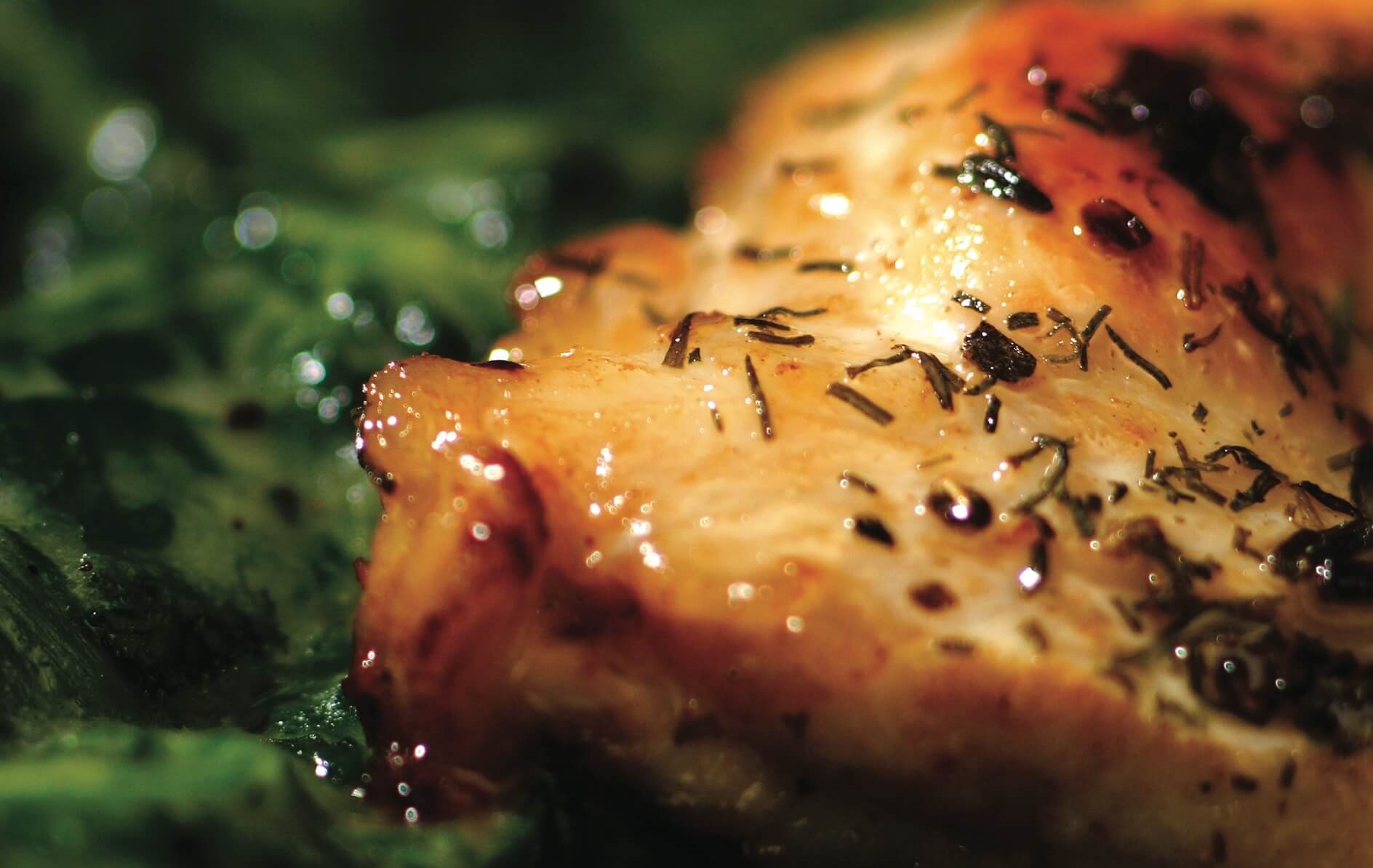
Are There Any Negative Interactions of Zinc?
Taking high doses of zinc for a prolonged period can interfere with the body’s absorption of other important minerals, including copper. This has the potential to do the opposite of what’s zinc supposed to do — it can depress the immune system and impair blood cell formation.
More commonly, only short-term and minor symptoms occur when taking moderately high doses of zinc. Some people who use zinc nasal sprays and gels also experience changes in the ability to smell or taste foods, which can impact appetite. Zinc can also cause nausea and indigestion, and possibly diarrhea, abdominal cramps and vomiting. This usually occurs within three to 10 hours of swallowing the supplements but goes away within a short period of time after the stopping the supplements.

